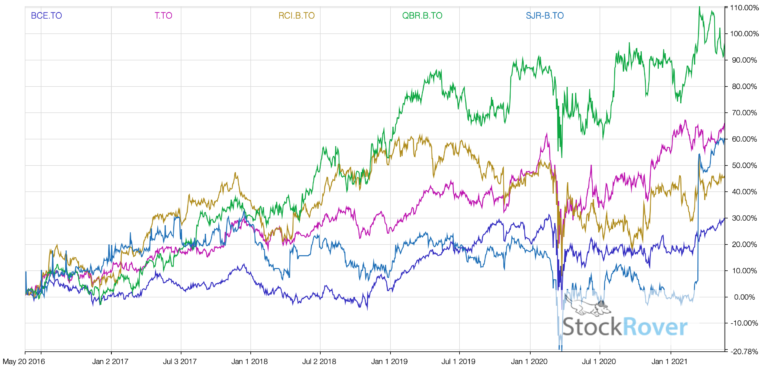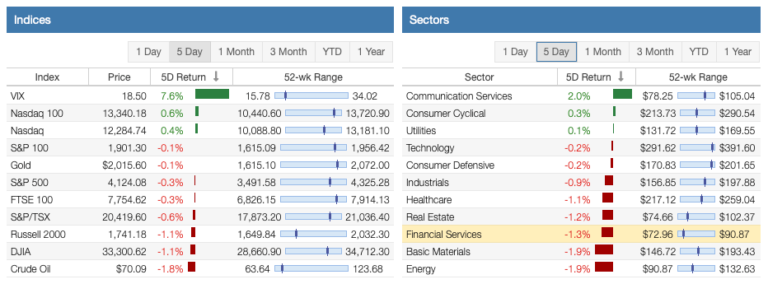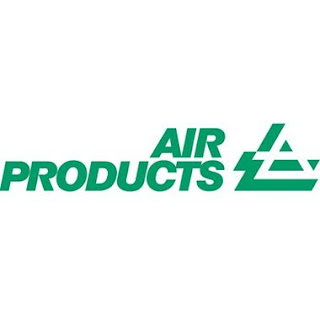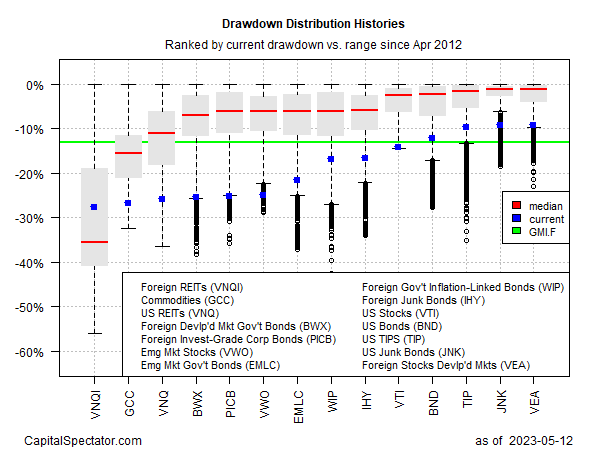
Best Canadian REITs: 4 Solid REITs for November 2021
Looking for a REIT for your portfolio? Want the best REIT? The reality is that REITs can have different focuses and therefore more than one can fit the bill thus allowing you to diversify your portfolio.
In general, you are looking for income with a REIT and not a stock like Netflix, Amazon or Shopify. During your search for income, don’t ignore the potential for distribution growth to keep up with inflation.
While the largest REIT is Canadian Apartment Properties, it might not be the best fit for your portfolio. The best REIT to invest in Canada for a good and safe income would be Choice Properties REIT. So you see, the largest REIT isn’t always the best.
The last thing you want is a REIT that pays the same income year after year as it means you actually make less due to inflation.
Now, you might not be aware but there are over 34 Canadian REITs trading on the Toronto Stock Exchange (TSX). However, only 20 have a market capitalization above $1B (Covid-19 has done some damage and the distribution (not dividends) is being adjust by many).
Continue reading but out of the 34 REITs, I have selected the top 4.
- Choice Properties REIT – Retail REIT – The stength is that the tenants are mostly businesses from Loblaw and your thesis should hinge on Loblaw.
- H&R REIT – Diversified REIT – It’s a broad stroke holding which can leverage strength in various markets to make up for weaknesses
- SmartCentres REIT – Retail REIT – Are stripped mall dead? Not really as you still need to go to some places for various items. Outlet malls, for example, are a perfect fit for this REIT. You want the best location.
- Allied Properties REIT – Office REIT – A strong portfolio of office and retail properties in the downtown core of all major cities. Office space is not going away, it’s just going to be different and they are positioned to adjust.
List of all Canadian REITs
Let’s start by looking at the full list of REITs and then drill down from there. The Canadian REIT sector has 7 industries to which a REIT belongs to based on the services they provide.
Knowing the industry they serve is quite important as it highlights what can influence their business.
I admit that I was pretty surprised to find this many REITs in total. That’s a lot of real estate income trusts to filter through. Choice Properties REIT is one of the most recent REIT created by Loblaw out of its real estate assets.
The list below for reference is sorted by market capitalization rather than yield. A REIT has a high yield just by the nature of the REIT and I am not looking for the REIT that pays the most but the REIT that will serve me best in the following criteria:
- [Quantitative] Decent Income Distribution – Between 4% and 6%
- [Quantitative] Consistent Payout – 3, 5 and 10 year averages should be consistent
- [Quantitative] Distribution Growth Potential – At or above inflation is good enough for a REIT
- [Qualitative] Stock Growth Potential – Can it grow and what is the strategy?
Most Canadian REIT investors will have the same criteria with different priorities but they are pretty standard. Below is the breakdown of all Canadian REITs by industries.
Picking the BEST Canadian REITs
To find the best Canadian REITs fitting my criteria, I choose to go through the following steps.
- Sort the REITs based on the Chowder Score (Yield and Dividend Growth)
- Sort the REITs by Dividend Increases (Consistency in dividend increases is good)
Narrow Down Your Canadian REITs
I decided to eliminate the little players. They may well have a lot of growth but I want an established REIT of at least $1B in market capitalization. With that criteria, they can have funds to expand and play in the big cities. That leaves us with the following REITs.
For the purpose of my selection, I will go with $1B as a minimum market capitalization. I am going to exclude the industrial REIT industry as I don’t understand that industry. For example, the healthcare REIT industry is also not an industry I understand.
There is definitely a growing market but I am not sure how the business model works. It leaves me with the list below sorted by market capitalization.
Compare Your Selected Canadian REITs
Now comes the hard part. The easy filtering is done. I could easily remove those with a yield under 4% but I am curious if they grow their yield and what the properties actually are.
If you have Wal-Mart as a renter, the chances of long-term business are much stronger than having an arbitrary small business. Personally, I have invested in both REI.UN and CUF.UN in the past. See my portfolio holdings for details.
The Best 4 Canadian REITs
1. Choice Properties REIT

The REIT’s properties are well located across Canada majorly in the largest markets. Approximately 57% of the portfolio’s base rent is generated from large urban markets, mainly in Toronto, Calgary, Vancouver, and Montreal.
The REIT’s portfolio includes 599 retail properties, 113 industrial properties, 16 office complexes, three multi-family residential buildings, and 22 development properties.
Key Investment Data
- Ticker: TSE:CHP.UN
- Sector: Real Estate
- Industry: REIT – Retail
- Market Cap: 5.15B
- Market Cap Group: Mid Cap
- P/E: 494.34
- Dividend Yield: 4.71%
2. H&R REIT

By asset type, H&R’s Office segment is the largest of the four segments and holds a portfolio of single tenant and multi-tenant office properties across North America, while its retail segment holds a portfolio of enclosed shopping centres, single tenant retail properties and multi-tenant retail centers throughout Canada and 16 single tenant retail properties in the USA.
By geographic region, Ontario and the USA account for 33% each of total fair value, followed by Alberta (25%) and other Canadian provinces (9%). H&R REIT’s focus on diversified portfolio of high quality investment properties in North America with quality tenants ensure stable cash flows.
Key Investment Data
- Ticker: TSE:HR.UN
- Sector: Real Estate
- Industry: REIT – Diversified
- Market Cap: 3.72B
- Market Cap Group: Mid Cap
- P/E: 6.33
- Dividend Yield: 3.95%
3. SmartCentres REIT

SmartCentres’ growing platform includes value-oriented unenclosed shopping centers and destination outlets. The REIT currently has 3,100 tenants and 34 million square feet of leasable space available across 150 locations across Canada.
SmartCentres has long enjoyed a reputation for consistent performance, making it one of Canada’s premier real estate investment trusts. Over the years, SmartCentres has developed a strong focus on retail development and operation. Its expertise has grown to include a variety of urban, mixed-use, residential and industrial developments, including a number of master planned communities.
Key Investment Data
- Ticker: TSE:SRU.UN
- Sector: Real Estate
- Industry: REIT – Retail
- Market Cap: 4.80B
- Market Cap Group: Mid Cap
- P/E: 6.97
- Dividend Yield: 5.57%
4. Allied Properties REIT

The firm focuses on urban intensification and has a presence in Canada’s major cities such as Toronto, Montreal, Calgary, Vancouver, Ottawa, Edmonton, and Kitchener. Allied’s segments can be divided into urban data centers (18% of 2018 NOI), western (12%), eastern (25%) and central (45%).
Office space accounts for a larger portion of its NOI at nearly 69%, followed by urban data centers (18%), retail (8%) and parking (5%). Allied also has a subsidiary, Allied Properties Management LP which provides property management and other fee-based services.
Key Investment Data
- Ticker: TSE:AP.UN
- Sector: Real Estate
- Industry: REIT – Office
- Market Cap: 6.22B
- Market Cap Group: Mid Cap
- P/E: 13.98
- Dividend Yield: 3.60%
Canadian REIT ETFs
If you find it too difficult to invest in a specific REIT, you can always buy a Canadian REIT ETF. Be sure to look at their holdings as they may only hold a subset of the REITs.
- iShares S&P/TSX Capped REIT Index Fund
- BMO Equal Weight REITs Index ETF
- Vanguard FTSE Canadian Capped REIT Index ETF
The above mentioned ETFs are probably the best Canadian REIT ETFs at this point in time. However, be on the lookout as most financial institutions are entering the ETF market and they should all be creating their own in due time.
Canadian REITs Summary
I will admit that it’s impressive to see the number of REITs available in Canada. I was pretty surprised at the business of H&R REIT with their corporate tenants. In the past, when I first purchased REITs, I had no understanding of the AFFO and since I learned about that metric, it changed how I evaluate REITs forever.
You HAVE to read their financial report for the year-end. It’s not just raw numbers. It highlights their businesses and strength. You get to understand the strength of their sector.
Which is the best Canadian REITs? Well, it really depends on your goals. Do you want to see dividend growth? Some of them have it. Do you want to only pick below 90% AFFO payout? Some of them fit the bill. Do you want to see growth in value? Some of them have it. Do you want high income? Some of them have it.
As you can see, there isn’t just one Best Canadian REIT. There is a best Canadian REIT for your portfolio based on your criteria. Are you nearing retirement? Are you starting and diversifying?
If you are new to REIT investing, you need to understand REIT taxation prior to making a purchase. The account you decided to use has a big tax impact.
Published at Tue, 08 Mar 2022 05:04:00 -0800




